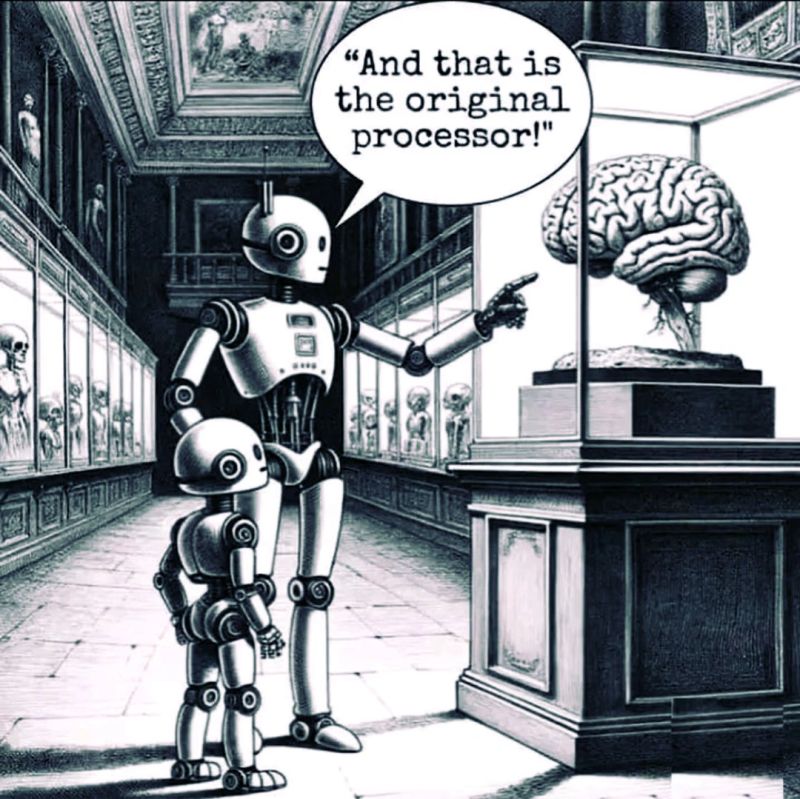Back
Advaith K
Learn,Grow,Shine • 1y
The idea of AI "taking over" humans is a common theme in science fiction, but it's not a straightforward or imminent reality. AI is increasingly capable of performing tasks that were once thought to require human intelligence, such as language processing, image recognition, and even decision-making. However, AI is a tool created and controlled by humans, designed to assist and augment human capabilities rather than replace them entirely. There are several key considerations: 1. Control and Ethics: AI systems are designed and controlled by humans, and their development is guided by ethical principles to prevent misuse or unintended consequences. However, there are valid concerns about the potential for AI to be used in harmful ways if not properly regulated. 2. Job Displacement: AI has the potential to automate many jobs, leading to significant changes in the workforce. While this could result in job losses in some sectors, it could also create new opportunities in others. 3. Super intelligence: The concept of AI reaching a level of intelligence that surpasses human intelligence—often referred to as "superintelligence"—is still largely theoretical. If such a level were ever achieved, it would raise profound questions about control, ethics, and the role of humans in a world dominated by AI. 4. Human-AI Collaboration: The more likely future scenario involves humans and AI working together, with AI handling specific tasks that can be automated, while humans focus on more complex, creative, and strategic work. Overall, while AI is becoming increasingly powerful, the idea of it "taking over" humans is more complex and distant than it might seem. The future will depend on how we choose to develop, control, and integrate AI into our societies.
Replies (4)
More like this
Recommendations from Medial
Sandip Kaur
Hey I am on Medial • 1y
AI vs. Human: The Future of Collaboration- The debate between AI and human capabilities is intense. While some fear AI will replace human roles, others see AI as enhancing human potential. AI excels in processing vast data, predicting trends, and aut
See MorePromptyy
Write your thread of... • 1y
In today’s digital age, artificial intelligence (AI) is increasingly taking on tasks once reserved for humans. From self-driving cars to virtual assistants, AI is proving to be an incredibly powerful tool for solving complex problems. But when it com
See MoreAbhijeet Sharma
Hey I am on Medial • 1y
Recently, Sam Altman has said that AGI may come as early as 2025. It will revolutionize the whole world as we see. I have been training AI LLM models for quite some time. My personal take is that while AI learns things exponentially it may not be abl
See MoreDownload the medial app to read full posts, comements and news.



















/entrackr/media/post_attachments/wp-content/uploads/2021/08/Accel-1.jpg)



















